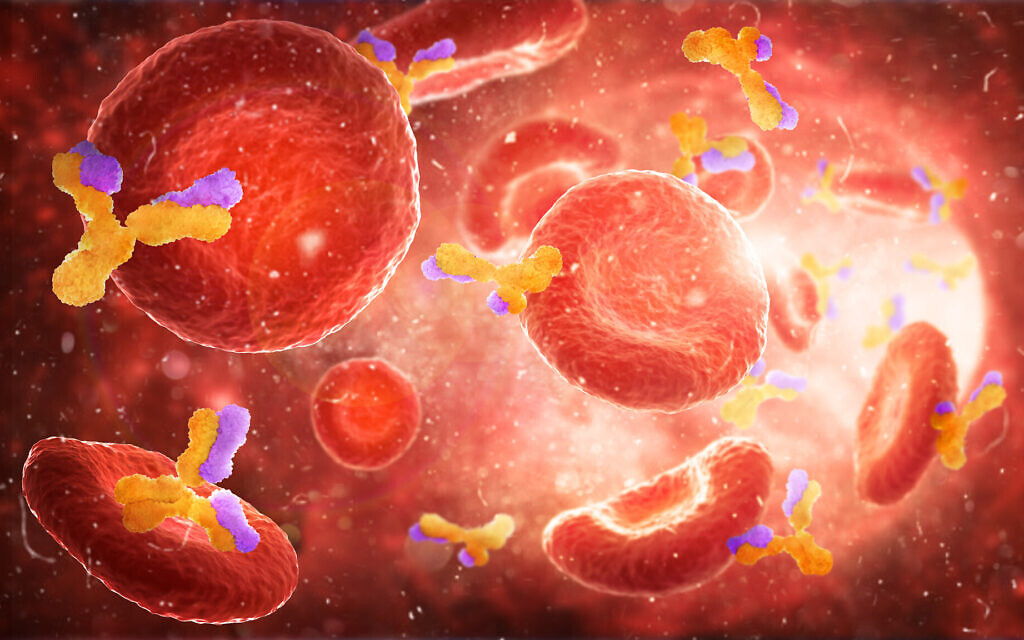PARIS, France (AFP) – People may be able to fight against reinfection for at least six months after recovering from COVID-19, thanks to cells that can “remember” the virus, according to research published Monday. market.
Researchers in the United States and Switzerland studied dozens of people who recovered from COVID-19 and found that, while their antibodies may disappear over time, they maintain specific memory B-cell levels.
These cells can resemble the pathogen and can, if faced with reinfection, stimulate the immune system to restart the production of antibodies that fight the virus.
Get the daily edition of The Times of Israel by email and never miss our top news.
“Memory responses are responsible for protecting against reinfection and are essential for effective vaccination,” concluded the study published in the journal Nature. “The observation that memory B cell responses do not decline after 6.2 months, but continue to evolve, is strongly suggestive that individuals infected with SARS-CoV-2 can mount a rapid and effective response to the virus after reexposure. ”
The authors evaluated 87 people with a confirmed diagnosis of COVID-19 just over one month and six months after infection.
While they found that the activity of virus neutralizing antibodies decreased over time, the number of memory B cells remained unchanged.
The researchers said the study indicated that the memory B cell response against the coronavirus evolves during the six months after infection, in the presence of the virus’s remaining proteins in the body – allowing the cells to produce more potent antibodies.
How long people can fight against the reinfection of the new coronavirus and what immune process is involved are essential to predict the dynamics of the pandemic.
Previous research has caused concern by showing that neutralizing antibodies can decrease rapidly after infection with the SARS-CoV-2 virus. But more recent studies have highlighted the role of other parts of the immune system in long-term immunity.
An article published in Science this month suggested that almost every major part of the immune system that can learn to recognize and repel a new pathogen can continue to respond to the virus for at least eight months.
This included protein-specific memory B cells, which the researchers found actually increased in the blood six months after infection.
The article was based on analyzes of blood samples from 188 patients with COVID-19.
